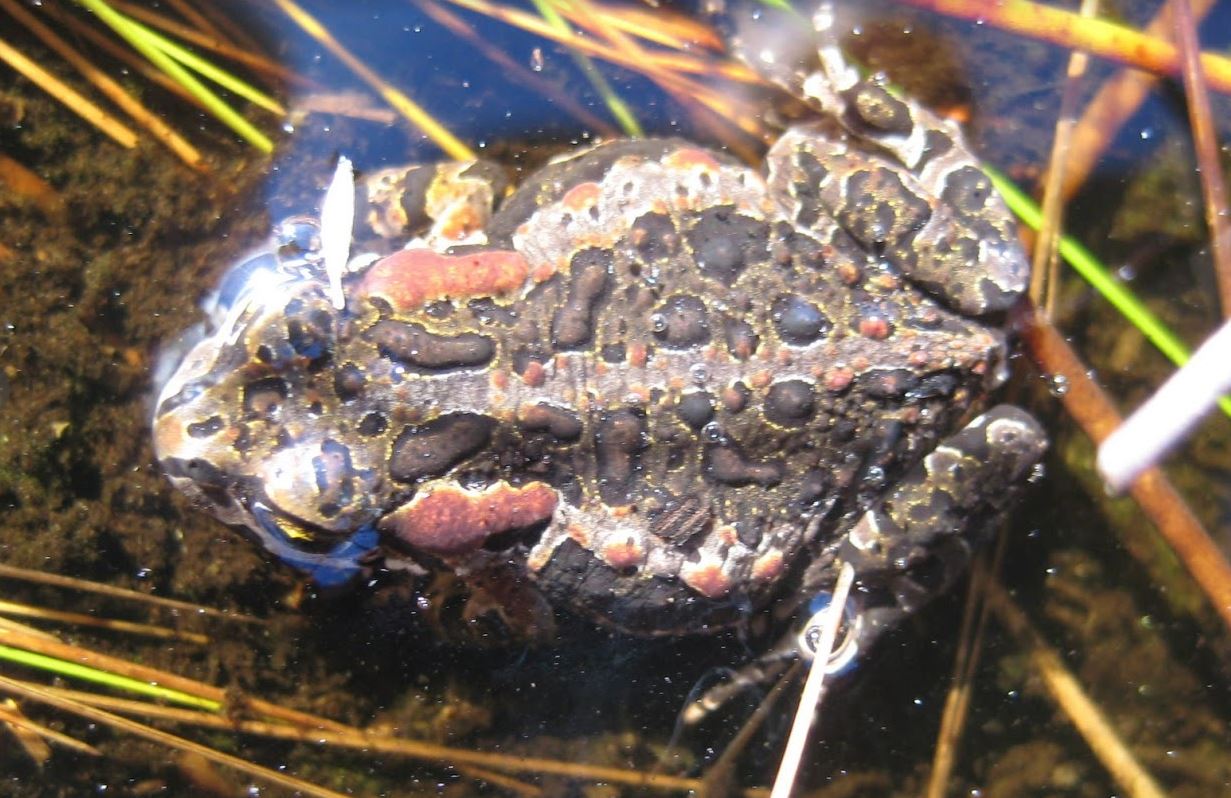Live for the day—or maybe longer depending on the weather!
Blue whales live for more than 100 years, while adult mayflies may come and go in a day. Our own lifespan has increased by nearly 10 years over the past generation. We are used to a world where the life expectancy of animals is expected to vary by a few years, but what if your lifespan was linked to the weather? Researchers from University of Cape Town, South African National Biodiversity Institute, and Stellenbosch University have discovered a frog whose likelihood of survival appears to be linked to the amount of winter rainfall in South Africa’s biodiverse fynbos biome.
Rose’s mountain toadlet comes out every winter to breed, but the amount of time the males spend waiting in puddles for females to arrive influences life-expectancy of these tiny toadlets. At only 20-30 mm long, these voiceless toadlets are easily overlooked, but the researchers, Francois Becker, John Measey, Krystal Tolley, and Res Altwegg, undertook a mark-recapture study over 7 years, to reach the finding that whether toadlets live long (4+ years), or just one year, depends on the weather.
Surprisingly, ‘good weather’ for frogs (wet winters) was found to reduce survival as animals are thought to spend more time out in the open, while ‘bad weather’ (drier winters) means they abandon the breeding site quicker, resulting in these toadlets living to try again another winter.

The correlation between survival and winter rainfall is truly remarkable, but the exact mechanism determining survival needs more work, and time is running out. The latest IUCN assessment is that this species is Critically Endangered and with climate in the area changing, it could be that changes in the winter rainfall regime could add to existing threats for this special species.
While this is the first known example of a vertebrate with extreme changes in survival that appear to be weather dependent, it may simply be due to a lack of sufficient research on the world’s smaller animal species. The researchers suggest that this kind of weather induced longevity change may be far more common than we are aware, prompting more concern about how changes to the climate may affect wildlife.
Read more about it here at American Naturalist